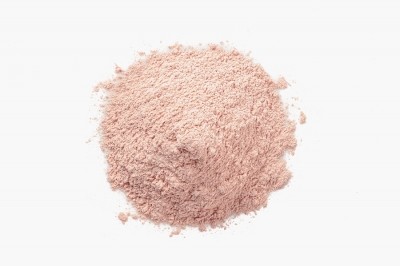Evvy raises profile of the vaginal microbiome

Raising awareness of these niche female needs and funding was not initially easy, especially when Evvy’s founders discovered that when they sought capital for their company, male funders could barely say the word ‘vagina.'
“We had to gear our pitches more to a female audience that would actually be willing to ask the hard questions and understand the complex problems we were trying to solve,” said Pita Navarro, Evvy co-founder and chief science officer.
Those “complex” problems include a lack of diagnostics and novel treatments for vaginal conditions, which are also associated with a significant economic burden influenced by women taking time off work or spending money on unproductive treatment.
In June, Evvy published the book "100 Effed Facts on the Gender Health Gap" to raise awareness of women’s health needs have been neglected, especially in current research.
The book consists of 100 statistics about gaps in women's healthcare across 12 categories: Autoimmune disease, brain and mental health, cancer, endometriosis, fertility, maternal health, heart health, hormonal health, medical gaslighting, menopause, menstrual and sexual health, and vaginal and urinary health.
The gender health gap is attributed to the fact that the inclusion of women in U.S. clinical research was not required until 1993, Navarro said.
“I think a lot of the comments we got on the book were related to the additional shocking facts outside of fertility, like women are 32% more likely to die if their surgeon is a man, or women are diagnosed with cancer 2.5 years later, on average, than men,” she said. “So I think it was the facts outside of fertility and vaginal health that really sparked the conversations, and that's kind of the domino effect that we wanted to have.”
Bacterial vaginosis
Among the conditions Evvy focuses on is bacterial vaginosis (BV), an infection prevalent across demographics and ages that occurs when the balance of bacteria in the vagina is disrupted. About 30% of women experience symptoms, while many might have asymptomatic BV.
Post menopausal women, for example, are deficient in estrogen, a hormone key for protective bacteria to thrive in a vaginal environment. Women postpartum also have fluctuating hormones and are more prone to vaginal dysbiosis.
“We know that even though BV can be asymptomatic it could potentially have an effect on cervical cancer progression, STI acquisition, fertility outcomes,” Navarro said.
For 40 years, the primary treatment for BV has been prescription antibiotics, such as metronidazole or clindamycin. Navarro explained that if a woman visits her doctor for BV, she will likely receive one of those two treatments, but will also have a 60% to 80% chance of recurrence within six months.
She added that certain bacteria could potentially cause biofilm that may decrease the efficacy of antibiotics and that patients prescribed broad spectrum antibiotics would get yeast infections, followed by their menstrual cycle and a return to a cycle of BV and yeast infections.
To address this issue, the company conducted a small pilot program with a clinic in New York showing that stratifying conditions led to more effective treatment of symptoms and shifted people to a more protective microbiome that hopefully prevented recurrence.
After testing, Evvy works by linking with providers to offer women options to protect, maintain and treat vaginal health issues using medical-grade ingredients most likely to improve an individual’s microbiome and symptoms.
“Treatment may include targeted antibiotics and/or antifungals to suppress the prominent disruptive microbes; research-backed supplements to support the protective microbes; and personalized soothing ointments as necessary to reduce specific symptoms as [an individual’s] microbiome transitions,” according to the company, adding that all ingredients are either FDA-approved for vaginal health or are available over the counter.
Looking ahead, Evvy researchers are exploring the genetic diversity of Lactobacillus crispatus, a strain known to have various effects on vaginal health, as well as a multi-strain probiotic because “we know that there’s just a lot of different functions that we need to maintain a healthy environment,” Navarro said.














